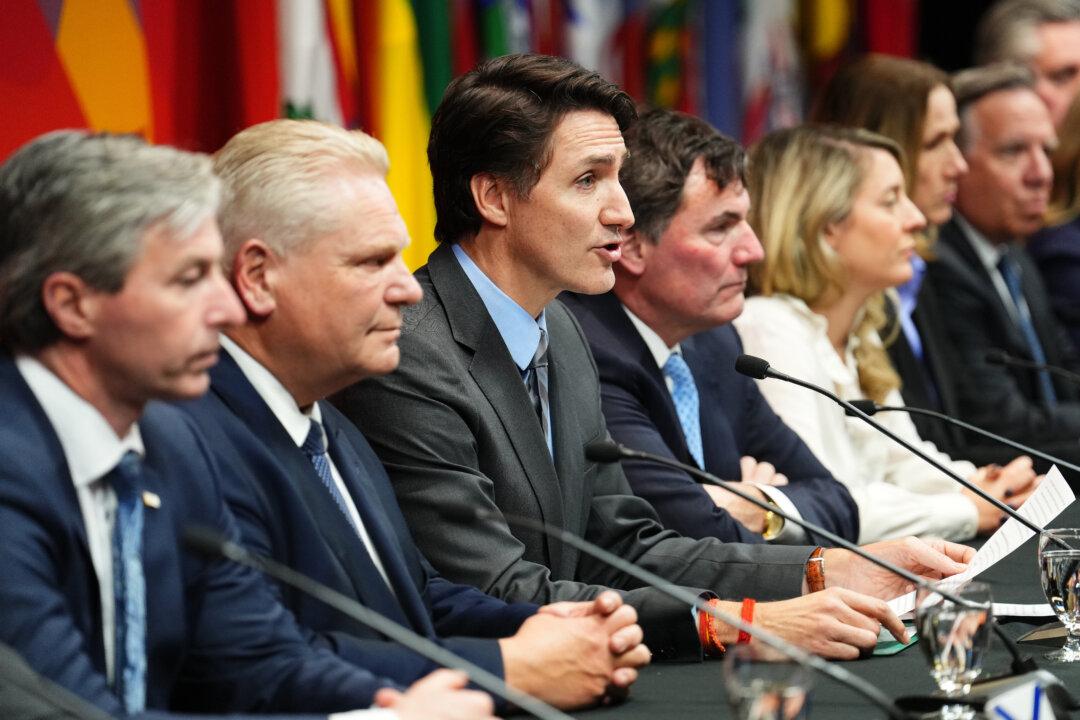The premiers may still be far apart on a collective response to U.S. tariffs, but are united on plans to boost interprovincial trade.
Prime Minister Justin Trudeau held another meeting with provincial premiers on Jan. 22 to plan a response to the threat of U.S. tariffs, which U.S. President Donald Trump has said could be in place by Feb. 1.





